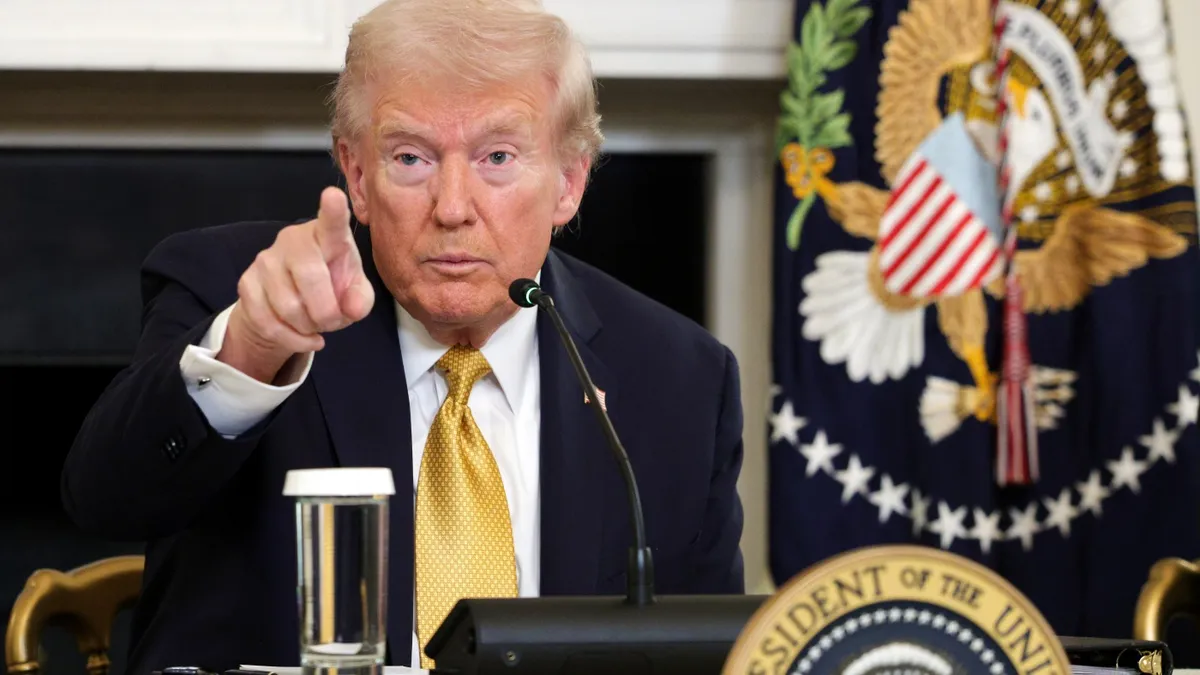
This week, the U.S. military executed two additional strikes targeting alleged drug boats, marking a significant escalation in its operations against drug trafficking. Notably, these attacks took place in the eastern Pacific Ocean rather than the Caribbean Sea, indicating a broadened scope of the Trump administration's anti-drug campaign originating from South America.
Defense Secretary Pete Hegseth shared a video on social media platform X, depicting a blue speedboat skimming across the ocean's surface before being struck and engulfed in flames. In his message, Hegseth drew a parallel between the actions of drug cartels and terrorist organizations, stating, "Just as Al Qaeda waged war on our homeland, these cartels are waging war on our border and our people." He emphasized that there would be "no refuge or forgiveness — only justice."
These strikes represent the eighth and ninth known attacks on suspected drug vessels, resulting in at least 37 fatalities. However, concerns have been raised regarding the legitimacy of the strikes, as the Trump administration has not publicly provided evidence to substantiate claims that those aboard the boats were affiliated with drug cartels or engaged in trafficking activities.
Prior to these recent operations, the U.S. military had increased its presence in the Caribbean Sea, particularly off the coast of Venezuela. Experts in international law have described this military buildup as unprecedented, questioning whether the true aim is to combat narcotics trafficking or to undermine Venezuelan President Nicolás Maduro.
"It's such overkill in this naval deployment that there could be no justification if all the United States is trying to do is to attack a couple of small boats," remarked Benjamin Gedan, who previously managed the Venezuela portfolio during the Obama administration. He speculated that the military actions might either be a bluff intended to intimidate Venezuelan military leaders or preparations for a potential conflict with Venezuela.
President Trump has asserted his legal authority to conduct these strikes in international waters, framing the operations as a national security imperative designed to protect American lives. During a recent meeting with NATO Secretary-General Mark Rutte, Trump boasted about the military's capabilities and the effectiveness of the strikes, claiming they save "tens of thousands of Americans" without providing corroborating evidence.
Furthermore, Trump indicated that land strikes may be forthcoming, stating, "We will hit them very hard when they come in by land." However, some lawmakers are voicing their concerns that the power to declare war lies with Congress, not the executive branch.
In the aftermath of the September 11 attacks, Congress granted the president authorization to use military force against those responsible. While the Trump administration has labeled various South and Central American drug cartels as foreign terrorist organizations, there has yet to be an official congressional authorization for military action against them.
Lawmakers from both parties have expressed apprehension that these military strikes may contravene domestic and international laws. Republican Senator Rand Paul criticized the administration's approach, noting, "The idea of indiscriminately killing people without knowing their names or seeing any evidence is concerning." He pointed out the irony in executing individuals deemed dangerous without substantial proof.
On Thursday, Trump suggested that he believes lawmakers will endorse his military operations but declined to commit to seeking a declaration of war from Congress, stating, "I don't think we're going necessarily to ask for a declaration of war." He reiterated his willingness to take lethal action against individuals involved in drug trafficking.
Legal experts have challenged the administration's claims, arguing that the justification for these military strikes lacks a solid legal foundation. Brian Finucane, a former State Department legal adviser, asserted that such premeditated killings could amount to murder, regardless of any legal rationale provided by the administration.
The latest military actions have also sparked concerns in Colombia, with President Gustavo Petro accusing the U.S. of committing murder and alleging that some operations resulted in Colombian casualties. In response, Trump announced a halt to aid payments to Colombia, asserting, "They're not going to get away with it much longer."
This week, a panel of independent United Nations experts noted that even if the boats were engaged in drug trafficking as claimed by the White House, the use of lethal force in international waters without adequate legal justification contravenes international law and could be classified as extrajudicial executions. Such military actions represent a dangerous escalation with serious implications for peace and security in the Caribbean region, as highlighted by the UN experts, who are appointed by the U.N. Human Rights Council.
As the situation evolves, it remains to be seen how the U.S. administration will navigate the legal and international ramifications of its military strategy against drug traffickers and the potential implications for its relations with countries like Venezuela and Colombia.